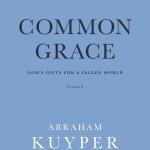As I’ve noted here in the past, the first time I picked up John Chrysostom in my slow read-through the Church Fathers, I thought it might be more fun to skip him and go on to someone more exciting. This time around I knew what I was getting into and was not disappointed–Chrysostom continues to be excellent. I don’t now that we learn much about Acts or Romans in volume 11 of the Nicene and Post-Nicene Fathers, which consists of Homilies of the Acts of the Apostles and the Epistle to the Romans. (You can read this for a pittance here or for free here.) However we certainly learn much about Chrysostom and about the early church.
We learn, for example, that you’d better not interrupt his sermon:
“Therefore… this will be to you judgment and condemnation, and I give you over to God from this time forth, if any having seen any person talking, especially in… the service… shall not inform against him, not bring him round to a better behavior. To do this is better than prayer. Leave your prayer and rebuke him, that you may both do him good, and get yourself profit..”
We also learn that Chrysostom had no interest in being seeker-sensitive:
“Let us not make this our study merely that the people may be many, but rather, that they may be excellent; when this shall have been effected then will that other follow also… Let us first aim at this, and then at the other. Where this is, that also will be easy: but where this is not, the other, though it be, is to no profit. For if there be those who are able to shine in the Church, there will soon be also numbers: but where these are not, the numbers will never be good for anything…. These things I say, that none may admire the church because of its numbers, but that we may study to make the multitude proof-worthy..”
We also learn something about how the world works, pretty obviously inspired more by Plato than by Scripture:
“For there are these four things, soul, family; city, world: and the things form a regular progression. He therefore that is to superintend a family, and order it well, must first bring his own soul into order; for it is his family: but if he cannot order his own family, where there is but one soul, where he himself is master, where he is always along with himself, how shall he order others? He that is able to regulate his own soul, and makes the one part to rule, the other to be subject, this man will be able to regulate a family also: but he that can do this by a family, can do it by a city also: and if by a city, then also by the world.”
But we also see how he sees the Gospel affecting this ordered world:
“all things are set forth as common both to slaves and to free, for instance, the love from God, the calling, the Gospel, the adoption, the grace, the peace, the sanctification, all things else.”
The Gospel is for all of us, regardless of our place in the world. Chrysostom is clear that the Emperor of Rome will go to hell without it, while the slaves in his palace may go to heaven with it.
Again, this isn’t great exposition. And Chrysostom lands too much on at times on the idea that spiritual works save us (it’s not his fault, Augustine was his contemporary and Luther was a millennium down the road, and he just didn’t have the language available to help him sort through the relationship between faith and works). But it’s still worth reading, especially in a world so given over to the kind of material prosperity Chrysostom repeatedly warned us about.
Dr. Coyle Neal is co-host of the City of Man Podcast an Amazon Associate (which is linked in this blog), and an Associate Professor of Political Science at Southwest Baptist University in Bolivar, MO













